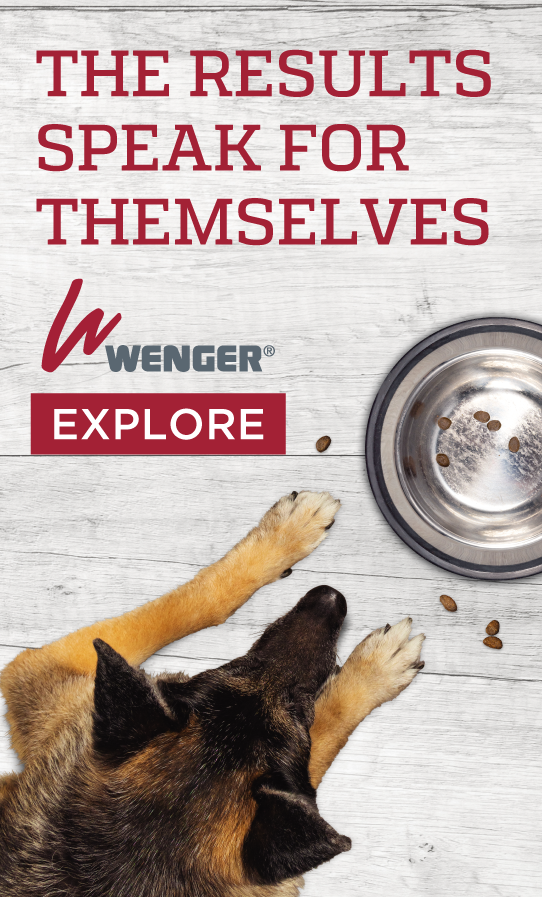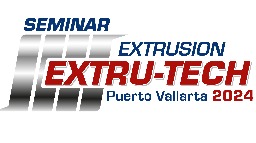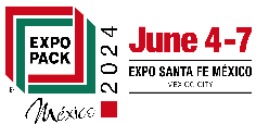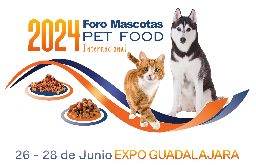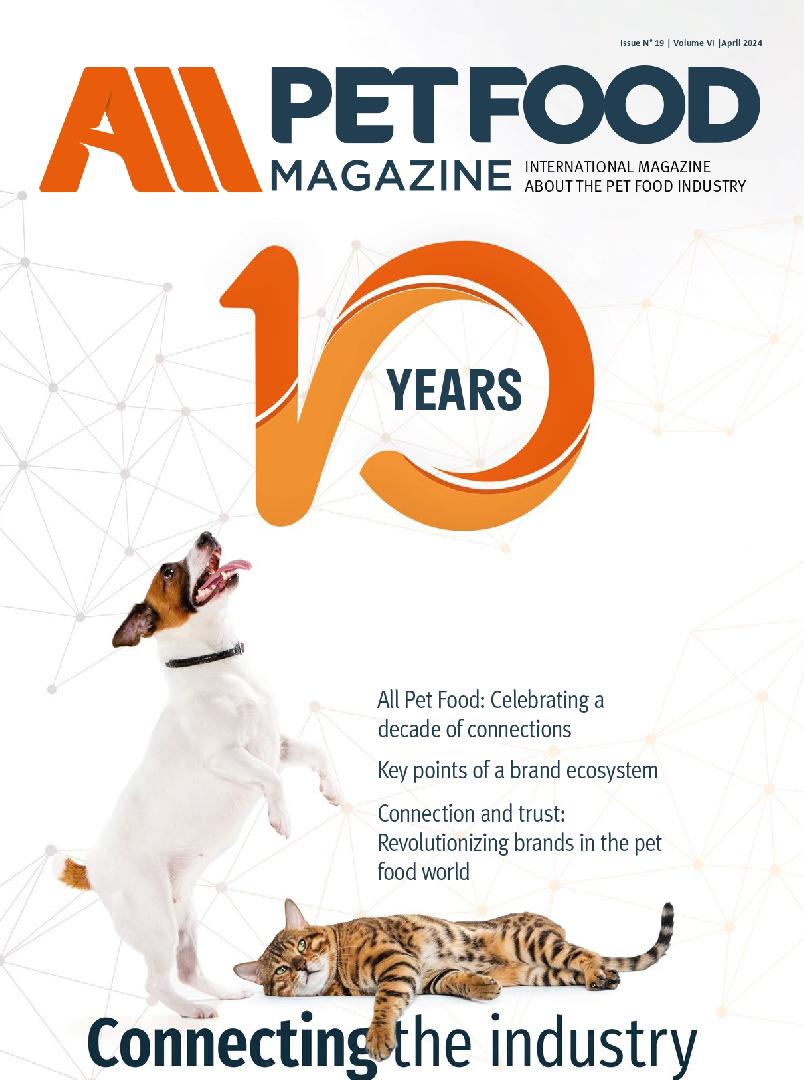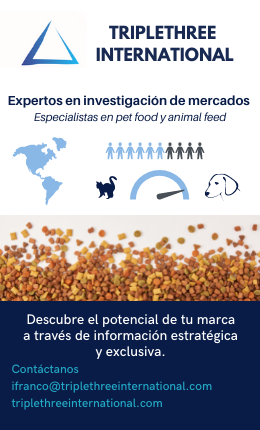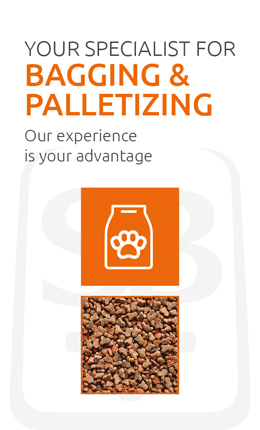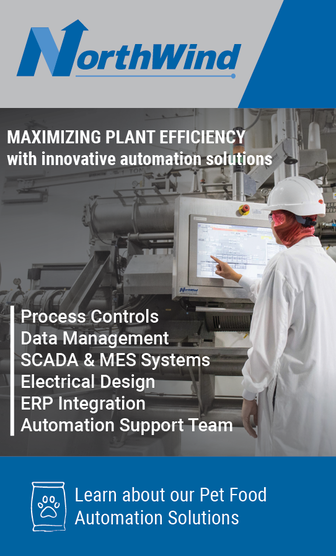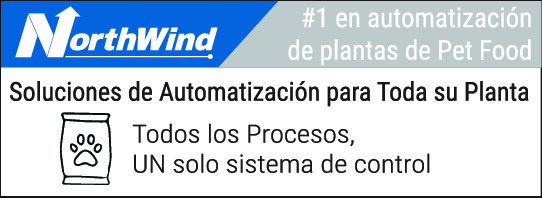The countdown to Zoomark has begun!
Exactly one year to its 21st edition, the global pet food and pet care trade show – scheduled for May 5th-7th 2025 at BolognaFiere – was officially presented to international media and companies.
The press conference – hosted by Luisa Bersanetti, Exhibition Manager at Zoomark, Pascale Sonvico, Show Office and Sales Manager at Zoomark, with the participation of guest speakers Giorgio Massoni, President of Assalco and Mattia Barchetti, Head of Market Intelligence at Nomisma – revealed all the latest news about the event as well as market insights. Giving the promising results achieved with our Rebooking and Early Bird campaigns, Zoomark 2025 is shaping up to be a success, with over 50% of exhibition spaces already snapped up.
'Zoomark, with its winning combination of culture and business, has always been an essential event for the pet market', noted Pascale Sonvico, Show Office and Sales Manager at Zoomark. 'We are grateful to the exhibitors and visitors who have cemented our success over the years, turning Zoomark into an unmissable occasion for the entire industry, eagerly anticipated by companies all over the world and increasingly important from a strategic perspective.
Now Zoomark becomes even more ambitious in its aims and targets, or, as the new slogan says, Bigger and Bolder. Our goal is to involve each company, each retailer and other pet professional to create a memorable event.
2023 was a record-breaking year, with over 68,000 m2 of exhibition space, 1,060 exhibitors and an incredible 28,000 visitors.'
Zoomark 2025 will be the hub of the future. 'We want to provide an exclusive platform for all brands around the globe, creating new business opportunities while forecasting market trends and shining a light on topics such as sustainability, the concept of One Health, and tailor-made products, which are so popular with Gen Z', Sonvico continued. 'At Zoomark 2025 we will provide visibility to what is relevant today, but we will also look further ahead and offer space to the future-forward topics within our dedicated areas."
Pet tech is a fast-growing and crisis-proof trend, and with this in mind, Zoomark has decided to build the Next 5.0 area for the future of the pet market, innovation and cutting-edge technology: a space dedicated to start-ups and more established businesses that offer high-tech solutions in fields like pet health and security.
Meanwhile, Zoomark's brand-new project Factory will put the spotlight on all businesses in the manufacturing supply chain (suppliers of raw and semifinished materials, equipment, packaging and services to the industry and to distributors), which plays an increasingly central role in meeting the needs of a growing market.
For the first time, Zoomark 2025 will also highlight excellence in the world of pet fashion, design and beauty through the launch of Atelier, a premium space for top buyers, brands and businesses.
Two beloved and long-standing projects will return to Zoomark 2025: Pet Vision (the new products showcase) that in 2023 displayed around 500 novelties, serving as a compass for distributors and retailers seeking future trends, and Aqua Project for businesses in the aquarium and terrarium sector, which will host meetings and seminars as well as exhibition space.
And the new features at Zoomark certainly do not end there! As Luisa Bersanetti, Exhibition Manager at Zoomark, pointed out, this constantly evolving, always up-to-date event is increasingly global in its outlook.
'Zoomark provides a bridge between Europe and the rest of the pet world', Bersanetti noted. 'In 2023, Zoomark welcomed exhibitors from 57 different countries and 62% of visitors from abroad, including high-profile players from every continent.
In 2025, we will further increase the number of buyers from key locations, and particularly emerging markets, offering businesses with stands at the event real growth opportunities.
To this end, we have already launched our new promotional campaign, with significant marketing efforts in advertising, in both print and digital media, across the world. The additional support provided by the Italian Trade Agency (ITA/ICE) for Zoomark's programme to attract external businesses has been crucial, helping us to meet our targets.'
Other new, highly anticipated projects are also quickly taking shape, including the strengthening of major international partnerships. One such venture is the agreement reached recently with Pet Fair South East Asia, where Zoomark will be coordinating the Italian businesses in the Italy Pavilion.
In a little over a month, on June 26th-28th 2024, Zoomark will bring its Pet Pavilion to the Shenzhen Convention & Exhibition Centre in the city's Futian district for Marca China, a dynamic event for private labels, e-commerce and large-scale retail. Zoomark's exclusive area dedicated to the pet sector will provide numerous Italian and international pet-related companies with preferential access to the Chinese market.
The centrepiece of the press conference in Nuremberg was the announcement of some of the most significant data emerging from the 2024 Assalco-Zoomark Report. The report revealed that, despite tricky conditions, the Italian pet economy has now reached significant heights, reinforcing Zoomark's position as a key event for global players interested in the Italian market. Giorgio Massoni, President of Assalco, gave a summary of insights in the Italian pet food and pet care sector and the outlook for the months ahead: 'The pet food market is proving to be resilient, confirming the attention that owners give to their pets, their life companions'.
The final item on the agenda was a preview of some of the highlights from a new piece of research conducted by Nomisma for Zoomark, which aims to provide a snapshot of the accessories sector by identifying current trends and the opinions, behaviour and purchasing habits of Italian pet owners.
'Nomisma has honed an innovative approach through its new partnership with BolognaFiere, seeking to analyse and study the trends in a market segment that is increasingly important for the pet sector, responsible for around 20% of overall revenue, which is non-food.', revealed Mattia Barchetti, Head of Market Intelligence at Nomisma.
The data presented at Interzoo 2024 on Italian pet owners' shopping habits paints a clear picture of a segment that has shown continuous growth in recent years.
'This survey is only the first step in a larger project, which will continue to develop as Zoomark 2025 approaches', Barchetti concluded.
'Zoomark is one of BolognaFiere's most prized events. It has accompanied the growth in the pet industry for over 20 years, interpreting the needs of the market and anticipating future trends. The active partnership between Zoomark and Interzoo and the fact they are held in alternate years makes them both unmissable events in Europe for the global pet food and pet care industry.
As a result of the growth in animal food and wellbeing products in modern mass retail, in June we will take our Pet Pavillion to Shenzhen as part of Marca China – another global BolognaFiere event dedicated to the private label market', stated Gianpiero Calzolari, President of BolognaFiere, officially starting the countdown to the event. 'We are sure that businesses wishing to enter the Chinese market will grab this new opportunity with both hands'.
Source: Zoomark.
You could be interested: New Symrise CEO Parisot looks optimistic into 2024 at the Annual General Meeting
Market Information
03/05/2024

















